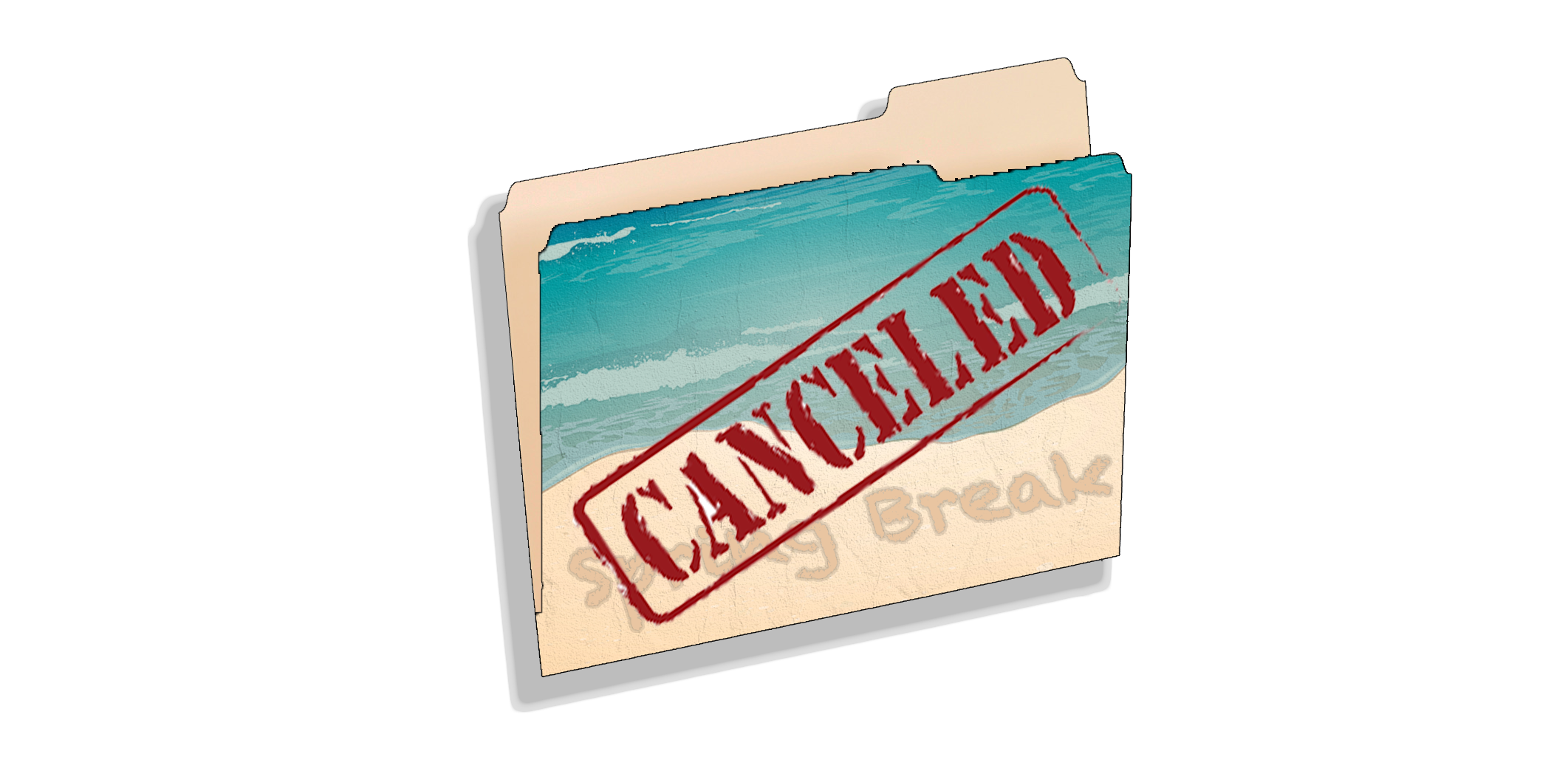Students and faculty react to the Sept. 18 announcement that spring break for the Spring 2021 semester has been canceled. Graphic by Emma Nobbe.
SOPHIE CIOKAJLO | STAFF REPORTER | sciokajl@butler.edu
On Sept. 18, Butler announced changes in its spring semester academic calendar via an email to students. Most notably, the changes included an extended winter break, as well as the elimination of spring break. Whereas last year winter break went from Dec. 20 to Jan. 13, this year it will run from Nov. 24 to Jan. 25.
Communications came after similar announcements from several other universities, including Purdue and Indiana University. Morgan Jackson, a sophomore health sciences major, said she was waiting on Butler to make a decision regarding spring once other universities had.
“I expected them to wait a little bit longer, but once Purdue came out with their schedule, I knew that we were soon to follow suit,” Jackson said.
Faculty were also looking toward modified spring calendars at other universities as an indication of Butler’s plan.
Professor of entrepreneurship Stephanie Fernhaber said she expected these changes based on similar ones made at surrounding universities.
“This seems to be the safety protocol that other universities are taking, and it seems logical in that we want to reduce the likelihood of leaving campus and coming back and access to additional germs and likelihood of transfer,” Fernhaber said.
The elimination of spring break mirrors the modified fall 2020 calendar, in which all mid-semester breaks — such as fall break and Labor Day — were canceled. Therefore, students will theoretically be less likely to travel, contract the virus and bring it back to campus.
Jackson said she doesn’t mind the removal of spring break and is happy to sacrifice the time off to be on campus for an in-person semester.
Penelope Schulman, a first-year dance performance major, said it’s disappointing to not have a spring break, but still worth it.
“I’m just glad to be here on campus for college because so many of my friends are at home or taking college online, and I think it’s worth giving up spring break to experience classes and dance on a campus right now,” Schulman said.
Fernhaber said she is unsure of the impact a semester without breaks will have on students.
“Whether that break is really needed there to maintain a focus or if it’ll be a new normal that students will appreciate, I’m not sure what to make of it from that standpoint,” Fernhaber said.
Similar to the fall semester, students have the option to choose whether or not they want to have an entirely-virtual semester. Students can contact administrators to move their schedule online for the spring in the event they feel unsafe with in-person instruction.
With the announcement of the new spring schedule, students were also told that they have until Oct. 15 to apply for a virtual second semester.
“I think it’s too soon,” Jackson said. “I think we haven’t received enough information from the university yet. To be honest, I don’t really think we received enough information for the fall semester.”
Beyond just having information available to them, Schulman expressed concern that students will likely have to make this decision while still on campus rather than at home with their families.
“I think it would be better if kids were able to go home and discuss this with their families and talk over the situation before they had to make that decision to come back, but I understand the school’s under pressure and they need to know who’s going to be here and who’s going to stay home,” Schulman said.
Fernhaber said that while students might not have all the information necessary to decide at this point, she is confident the university will be flexible if the situation changes before the start of the spring semester.
“If I were a student, I would use the information and what you know now,” Fernhaber said. “We will all have to adjust and collectively work together if the information or situation changes.”
With all of the uncertainty and time between now and returning to classes in January, both Fernhaber and Jackson said they are hopeful, but ultimately feel unsure whether the university will be able to return to in-person instruction or not.
“The data on the active cases is much lower than I ever anticipated, so I’m not sure what to expect,” Fernhaber said. “Right now I’m optimistic that we will be back in the spring, but again, time will tell.”
Schulman said that the most important part of returning to campus is continuing the testing and precautions from the fall semester.
“I think coming back we’re going to have to be tested again and we’re going to have to take the same precautions we did before arriving on campus, but it seems to be working so far so I’m hopeful for the spring,” Schulman said.



